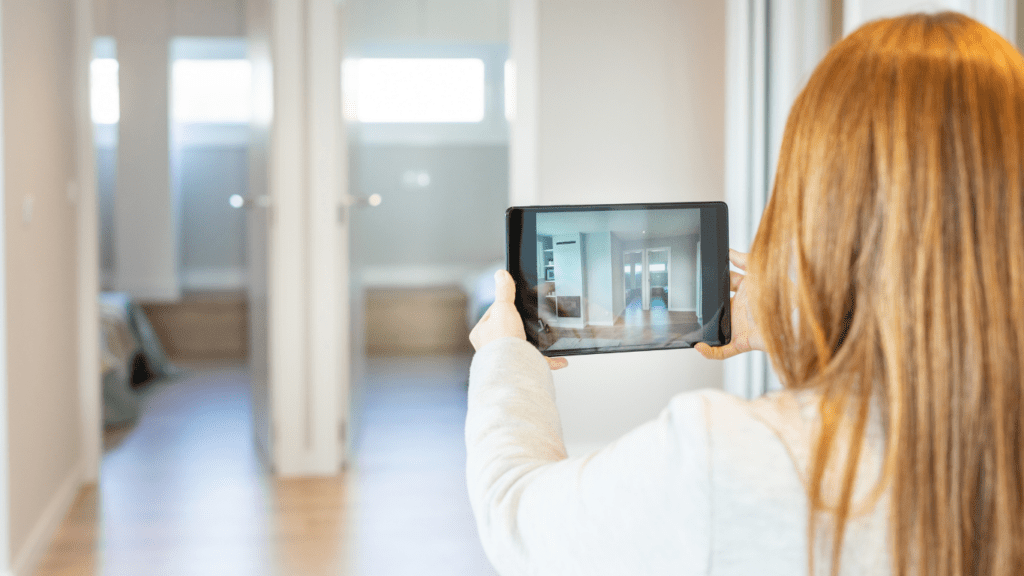The Rise Of Artificial Intelligence In Real Estate
Artificial Intelligence reshapes real estate by streamlining processes, enhancing accuracy, and improving decision-making. From valuations to client interactions, AI optimizes every aspect of the industry.
AI-Powered Property Valuation
AI tools analyze market trends, historical pricing, and neighborhood data to deliver precise property valuations. Unlike traditional methods, machine learning algorithms factor in variables such as economic changes and local amenities in seconds. For example, platforms like Zillow use proprietary AI models to estimate property values down to the block level. These tools reduce human error and speed up the appraisal process.
Virtual Assistants For Real Estate Agents
AI-driven virtual assistants automate administrative tasks, freeing agents to focus on client relationships. These assistants schedule appointments, answer inquiries, and even generate leads using natural language processing. Tools like Amelia and Reta.ai handle customer queries 24/7, enhancing response times and service quality. Real estate agents using AI gain a competitive advantage with better efficiency and satisfied clients.
Blockchain Technology And Smart Contracts
Blockchain is revolutionizing real estate by providing secure, transparent, and decentralized solutions for property transactions. Integrating smart contracts further enhances efficiency by automating legal agreements.
Ensuring Transparency And Efficiency In Transactions
Blockchain ensures transparency by maintaining immutable records of all transactions, reducing the risk of fraud or disputes. Every transaction is stored in a distributed ledger, making data tamper-proof and easily accessible. Smart contracts streamline processes by executing predefined terms automatically once conditions are met, minimizing delays. For example, a property deed transfer occurs instantly when payment is verified on the blockchain.
Blockchain-Based Property Listings
Blockchain enables more reliable property listings by integrating public and private records into secure platforms. This eliminates redundancies, ensures accuracy, and simplifies verification details like ownership history, liens, or zoning information. Decentralized listing platforms powered by blockchain reduce the dependency on intermediaries while offering prospective buyers access to verified information. Platforms like Propy showcase how blockchain-based models promote trust and simplify property discovery.
Virtual And Augmented Reality For Property Tours

Virtual and augmented reality are transforming how buyers and renters experience properties remotely and on-site. These tools enhance engagement by offering interactive, immersive solutions that simplify decision-making.
Immersive Virtual Reality Showcases
Virtual reality (VR) allows users to explore properties remotely with lifelike accuracy. VR showcases simulate walking through a house or apartment, providing a 360-degree perspective that replicates physical tours. This eliminates the need for initial in-person visits, saving time for agents and buyers.
For example, platforms like Matterport create virtual property models by capturing high-resolution 3D scans. Users can navigate layouts, view intricate details, and even customize interiors digitally. Properties marketed with VR tools see reduced time on the market as prospects make quicker purchasing decisions.
Augmented Reality For On-Site Enhancements
Augmented reality (AR) overlays digital components onto real-world settings, allowing users to visualize modifications onsite. With AR apps, buyers can evaluate renovations by projecting furniture, fixtures, or color schemes within a property before making commitments.
Tools like IKEA Place enable 3D furniture placement to check how furnishings would fit and look in real-time. Similarly, AR enhances transparency by revealing hidden infrastructure like piping or wiring during walkthroughs. For new constructions, AR enables mapping unfinished spaces, helping clients envision the completed build.
The Growth Of PropTech Startups
PropTech startups are redefining the real estate landscape by delivering innovative solutions that address industry challenges. These startups are facilitating new efficiencies in property management, transactions, and customer experiences.
Innovations Driving The Industry Forward
PropTech startups are leveraging advanced technologies like AI, blockchain, and IoT to revolutionize real estate operations. AI integrations are powering predictive analytics for market trends and customer preferences, helping agents provide tailored services. Blockchain platforms are enabling secure, transparent transactions by eliminating intermediaries and using smart contracts. IoT solutions optimize smart building management by monitoring energy usage, security systems, and maintenance needs in real-time.
Startups are also pushing the adoption of fractional property ownership through tokenization, allowing smaller investments in real estate markets previously inaccessible to many. Platforms are gamifying real estate investment processes to engage new demographics, while digital twins enhance urban planning, enabling accurate simulations of property developments.
Key Startups To Watch In 2024
Several notable PropTech startups are making significant impacts. Opendoor simplifies home buying and selling using AI-powered pricing models. Propy, a blockchain-driven platform, secures real estate transactions from fraud and enables international purchases. Matterport’s 3D virtual tours help buyers visualize spaces remotely with stunning detail, transforming property discovery.
Startups like Pacaso are innovating co-ownership of vacation homes by managing fractional ownership and property maintenance. SmartRent focuses on IoT solutions for multifamily property management, automating smart home features and tenant services. Others like Rechat enhance agent workflows with CRM and marketing automation tools, improving productivity and client interaction. These companies exemplify how PropTech innovations add value across the real estate sector.
Big Data And Predictive Analytics
Big data and predictive analytics are enhancing decision-making in real estate by uncovering valuable patterns and trends. These technologies enable more informed strategies for investments and personalized property solutions.
Market Trends And Investment Insights
Analyzing vast datasets helps identify emerging market trends and assess real estate investments with precision. Predictive analytics evaluates metrics like local market growth, demographic shifts, and economic conditions to forecast property values and market performance. For example, platforms like Zillow leverage these insights to determine real estate market dynamics, enabling agents and investors to make proactive decisions. Risk assessment tools powered by big data also provide insights into potential investment pitfalls and opportunities, reducing uncertainties.
Personalized Recommendations For Buyers
- Predictive analytics tailors property recommendations by analyzing individual buyer preferences and past behaviors.
- Algorithms assess criteria like budget, desired location, and property features, offering targeted suggestions that align with buyer needs.
- Platforms like Redfin use personalized insights to improve property discovery, helping clients find homes that match their lifestyle.
This approach enhances customer satisfaction by reducing search time and aligning properties with buyers’ priorities.
The Role Of IoT In Smart Real Estate
IoT has significantly influenced the real estate industry by integrating smart devices and networks into properties. It enables enhanced automation, energy efficiency, and property management for homeowners, tenants, and managers.
Connected Homes And Smart Devices
IoT powers connected homes by integrating devices like smart thermostats, lighting systems, and security cameras. Devices such as Nest thermostats allow users to remotely control temperatures, reducing energy consumption and costs. Smart lighting systems like Philips Hue adapt according to schedules or preferences, ensuring optimal energy use. IoT-enabled security solutions, such as Ring doorbells, provide real-time monitoring, enhancing safety and convenience for residents. These technologies elevate home comfort while optimizing daily living with automation.
IoT For Property Maintenance And Management
Property maintenance is more efficient with IoT-enabled systems detecting issues early.
- Smart sensors monitor structural elements, like detecting water leaks or temperature anomalies, preventing costly damages.
- Platforms like SmartRent streamline building management with IoT tools for monitoring HVAC systems, lighting, and security access.
- Predictive maintenance reduces downtime and emergency repairs while ensuring operational continuity.
- IoT also facilitates energy monitoring, helping managers track consumption trends and implementing sustainable energy-saving measures.
Green Tech And Sustainability Innovations
Technological advancements in real estate are driving more eco-conscious approaches, focusing on reducing environmental impact and promoting sustainability. Green tech innovations are reshaping property development and management through renewable energy and smart energy-efficient systems.
Renewable Energy Integration In Properties
Properties are increasingly adopting renewable energy systems to minimize reliance on conventional power sources. Solar panels, for example, are being installed on residential and commercial buildings, providing clean energy and reducing electricity costs. Wind turbines are being utilized in suitable areas, especially for large-scale developments, to generate sustainable power.
Battery storage technologies are being incorporated to store excess renewable energy, ensuring consistent power supply during peak usage or outages. Net-zero buildings, designed to produce as much energy as they consume, are gaining traction worldwide. These environmentally friendly practices not only benefit the planet but also attract eco-conscious buyers and tenants.
Smart Technologies For Energy Efficiency
Smart systems, integrated with IoT, are improving energy efficiency across properties. Devices like smart thermostats, such as Nest and Ecobee, optimize heating and cooling based on occupancy patterns and weather conditions, reducing energy waste. Smart lighting systems use motion sensors and daylight harvesting to adjust illumination automatically, cutting down electricity consumption.
Energy management platforms, such as those provided by Enertiv, monitor energy usage in real-time, identify inefficiencies, and recommend corrective actions. Smart building technologies also enable predictive maintenance by detecting potential issues in energy systems before they lead to wastage, ensuring cost savings and environmental sustainability. Properties utilizing these innovations appeal to sustainability-conscious investors and residents.
The Emergence Of Digital Twin Technology
Digital twin technology represents a groundbreaking advancement in real estate. By creating digital replicas of physical spaces, it transforms property management, urban planning, and buyer engagement.
Creating Virtual Models Of Real-World Properties
Digital twin technology generates precise digital models of physical properties using data from IoT sensors, drones, and 3D scanning tools. These models integrate real-time data, such as temperature, humidity, and occupancy levels, providing a dynamic view of property performance. For example, property owners can monitor energy efficiency or identify maintenance needs remotely through these virtual representations. Platforms like Twinmotion and Digital Twin Studio enable real estate professionals to create detailed virtual property models for seamless visualization and analysis.
Applications In Urban Planning And Development
Urban planners use digital twin solutions to simulate and assess infrastructure projects before implementation. By incorporating data on traffic, population density, and environmental factors, digital twins analyze potential outcomes of new developments. They assist investors and developers in optimizing designs for commercial districts, residential areas, and mixed-use projects. For instance, cities like Singapore leverage digital twins to improve urban layouts, reduce congestion, and implement sustainable development strategies. Real estate stakeholders gain actionable insights that drive smarter, data-backed decisions in complex urban environments.
Enhanced CRM Tools For Real Estate Agents
Enhanced customer relationship management (CRM) tools are transforming how real estate agents engage with clients. These platforms consolidate workflows, improve communication, and boost client satisfaction.
Building Better Client Relationships
Modern CRM tools help agents build stronger client relationships through personalized engagement. By analyzing client data such as preferences, behavior, and property history, these platforms identify opportunities for targeted follow-ups. Features like automated reminders ensure timely updates about listings, appointments, or key transaction milestones. For instance, Salesforce and HubSpot allow agents to create custom workflows tailored to client needs, fostering trust and retaining long-term relationships.
Streamlined Communication And Data Management
CRM tools streamline communication channels by integrating messaging, emails, and calls into a unified platform. This reduces fragmentation and provides a transparent record of client interactions. Advanced tools also include AI-driven chatbots for instant responses, ensuring no inquiry goes unanswered. Additionally, centralized data storage simplifies access to documents like contracts and property details, cutting time spent searching files. Platforms like Zoho CRM and Wise Agent enhance efficiency by allowing real-time collaboration across teams while ensuring data accuracy.




